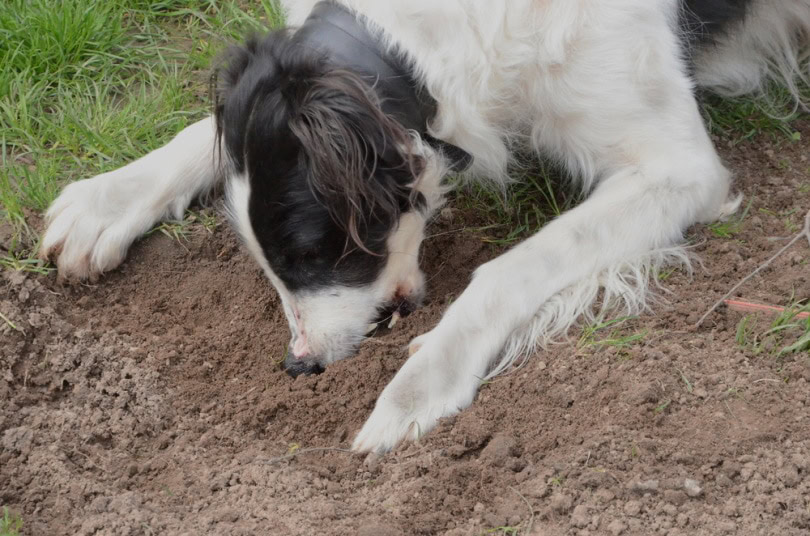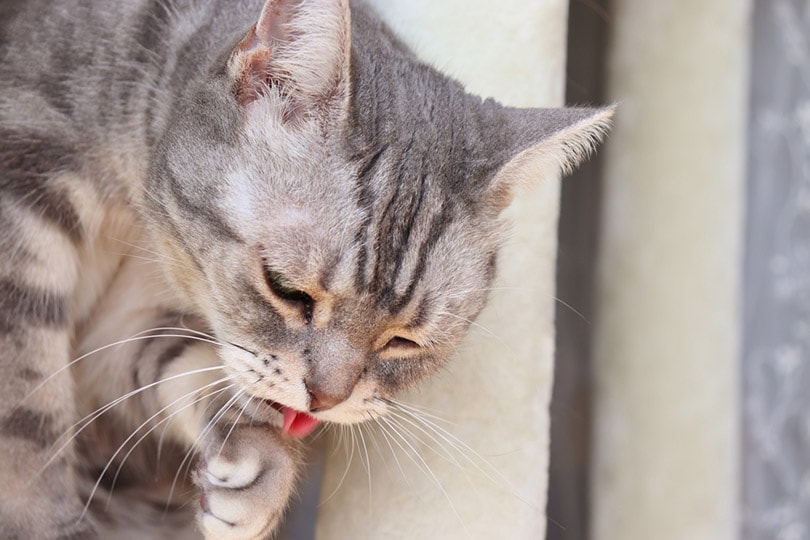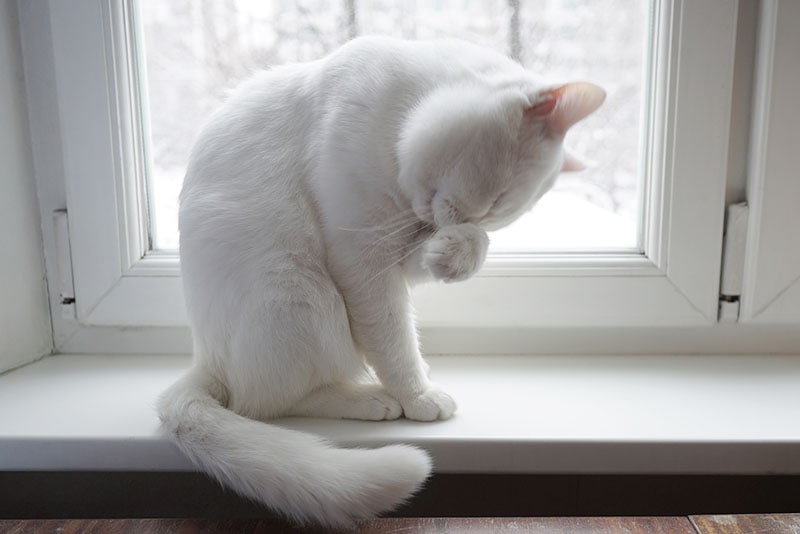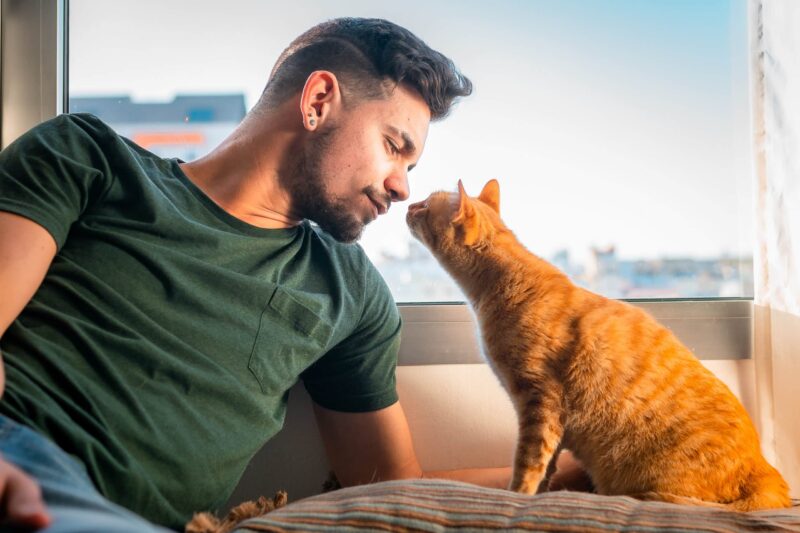VET APPROVED

The information is current and up-to-date in accordance with the latest veterinarian research.
Learn more »Click to Skip Ahead
No matter how much money we spend buying our dogs the tastiest, best quality food we can afford, they never seem to lose their tendency to snack on the most disgusting things they can find. Whether they’re scavenging from the litter box or ingesting a dead bird you come across on your daily walk, dogs have strange tastes in food.
If you’ve started noticing your dog eating dirt, you might wonder if there’s a reason for this behavior or if your dog’s just being weird. Well, it turns out your dog’s behavior might have a purpose, or it could even be a sign of serious medical problems. Here are six common reasons why dogs eat dirt, as well as some tips on how to stop them.

The 6 Reasons Dogs Might Eat Dirt
1. The Dirt Smells or Tastes Good
Is your dog eating dirt under your backyard grill? Have you recently mixed manure fertilizer into your garden? Do your kids routinely drop food on the ground in your yard? If so, your dog might be eating dirt because it smells or tastes delicious to them. This kind of dirt-eating usually happens occasionally and probably isn’t a sign of a deeper problem.
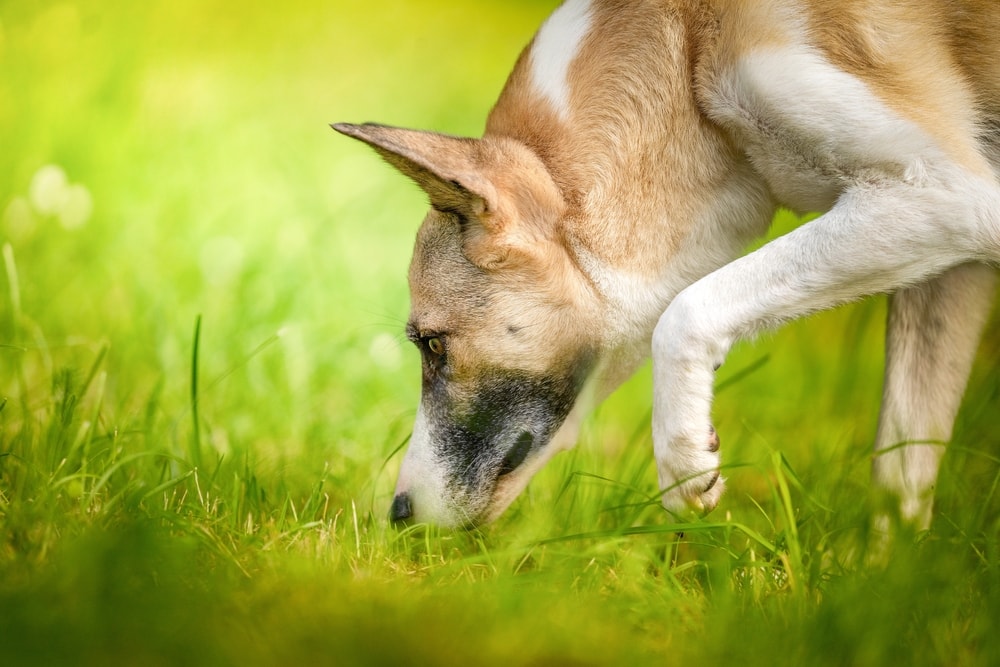
2. Your Dog Is Hungry or Lacking Nutrition
Your dog could be eating dirt because they aren’t getting enough to eat or the food they eat is missing essential vitamins or minerals. In some cases, your dog may be eating the right diet but could be suffering a health problem preventing them from properly absorbing all the nutrition they need from it.
3. Your Dog Is Bored
Bored dogs can develop numerous destructive behaviors, including chewing, digging holes in the yard, or eating dirt. Some dogs don’t handle being left alone very well. Your dog could also be bored because you started working long hours, the kids went back to school, or they aren’t getting enough physical and mental stimulation every day.
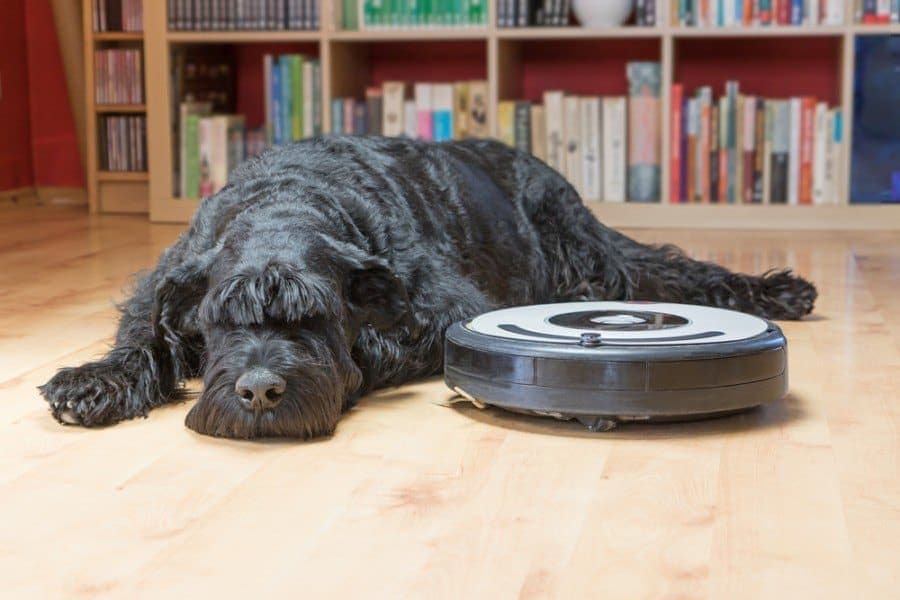
4. Your Dog Is Stressed
Like boredom, stress can also cause your dog to act out, including eating dirt. Some dogs are adaptable and seem to handle whatever life changes roll their way. Others are more sensitive and may react dramatically to any slight alteration in their daily routine. If your dog starts eating dirt suddenly, consider whether stress might be the reason.
5. Your Dog Has Stomach Trouble
Some dogs may eat dirt to help soothe an upset stomach or digestive issues. Most of us are more familiar with dogs eating grass when they have tummy trouble, but some dogs eat dirt instead. Your dog also might swallow dirt as they tear up and eat grass to help their bellies feel better.
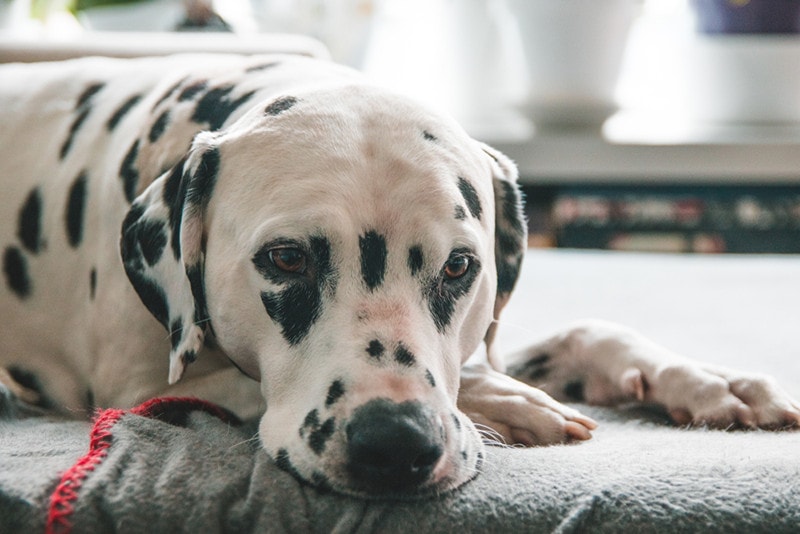
6. Your Dog Has a Medical Problem
One serious medical problem that can lead to your dog eating dirt is anemia or low red blood cells. There is some speculation that anemic dogs eat dirt in an attempt to increase their iron intake, but this remains unknown. Pica is a condition in which dogs obsessively eat various non-food items, including dirt. It can be behavioral or a sign of another disease, such as intestinal or liver disorders.
If you suspect that your dog is eating dirt because of a medical or behavioral issue, you should consult a vet.

The Dangers of Eating Dirt
Occasional dirt consumption probably won’t hurt your dog, but if your dog starts consuming large amounts of dirt, they could end up getting an intestinal blockage. If your dog eats potting soil or the soil in your garden, they could consume toxic substances such as fertilizers. Dogs can also get worms or intestinal parasites from eating infested dirt.
Eating dirt sometimes includes eating sticks and rocks, which can damage your dog’s teeth or become stuck in their throat or intestines.

The 4 Ways to Stop Your Dog From Eating Dirt
Stopping your dog from eating dirt requires figuring out why it’s happening and taking the appropriate steps to correct the problem.
1. Rule Out a Medical or Nutritional Problem
If your dog is eating a lot of dirt, the first thing you should do is see your veterinarian to rule out an underlying medical concern. Anemia or some of the other diseases causing pica require lab tests and other diagnostics to confirm. Once a health problem is diagnosed, your vet can talk to you about how to treat it.
If your dog is eating dirt because of a nutritional deficiency, your veterinarian can also help with that. In some cases, the dog may be fed a homemade diet that isn’t nutritionally balanced. Many owners prefer to feed their dogs homemade food, but it’s essential to work with a veterinarian to ensure the diet meets all your pet’s nutritional needs.
2. Make Sure Your Dog Gets Enough Exercise and Attention
If your dog is eating dirt out of stress or boredom, step up your efforts to spend time with them. Make sure your dog gets regular exercise and mental stimulation in the form of toys or training sessions. You can enlist a friend or pet sitter to spend time with your dog during the day if you are away from home for long hours.
Try to determine what has changed in your or your dog’s life that could lead to stress. Whether it’s a new baby, a new pet, or moving to a new home, stress is often unavoidable, but there are ways to help your dog deal with it. Give your dog plenty of attention and enrichment first, and ask your veterinarian about soothing pheromones that might help your dog calm down.
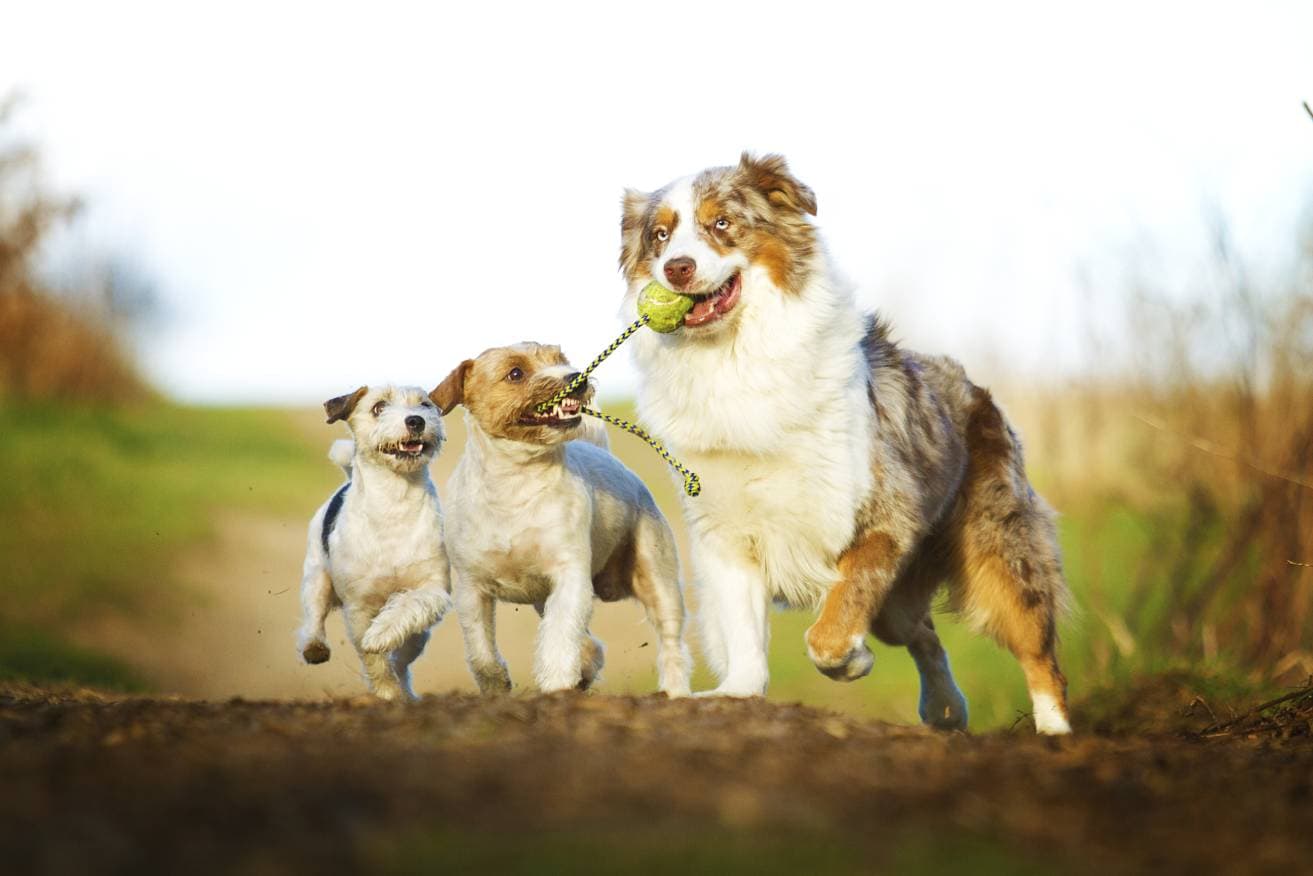
3. Cut Off Access to the Dirt
Keep your dog from eating dirt by making it hard to find dirt to eat. Place indoor plants up high or locked away from your dog, and install a fence around your garden or flower beds outside. When taking walks, make sure your dog is always leashed so you can ensure they aren’t sneaking dirt snacks.
4. Get Professional Help
If you’ve tried everything to keep your dog from eating dirt, it might be time to consult a professional. Your veterinarian can help you find a trainer or dog behaviorist who can work with you and your dog to break the dirt-eating behavior.


Conclusion
In most cases, your dog eating dirt isn’t necessarily a cause for concern. Again, dogs have strange tastes sometimes, and it’s often nothing more than that. At the same time, sometimes, dirt-eating is a sign of a behavioral or medical problem. You know your dog best, and if you’re worried about them for any reason, including eating dirt, don’t hesitate to contact your veterinarian.
Featured Image Credit: Kim Christensen, Shutterstock
